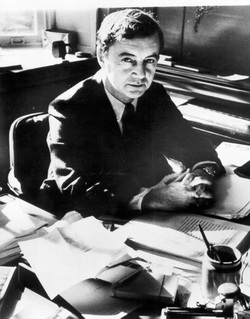I read Friend Me if You Facebook: Generation Y and Performative Surveillance by E.J. Westlake as part of my research. This particular essay was not only critical to the development my thesis but was essential to my continued research as well. It took my existing ideas and bolstered them, and then it shaped the rest of my research. I had never conceived of the notion of social networking being a performance of identity, and when I read that many things seemed to “click” in my head. Something about the word “performance” truly set a new course for my research, as I began using those ideas as keywords and search terms.

To perform is to put on a new identity and act as though it is your true one. This is literally what I believed to be happening on social media sites while I was enveloped in them: my peers were performing online identities. These were people I knew and talked to in person, and some of the things they subscribed to and did on media platforms such as AIM and MySpace did not make sense to me given their personalities. I originally thought it was a matter of competition. I focused in too greatly on this particular idea. I had put the blinders on, my view too narrow to think about the very core of my argument. I did not see that what these people were doing was not about the competition (though that may still have been a factor). It was truly about the performance. It was about doing things they otherwise would not have because they were putting on a good show for all their peers to see. That Westlake tied this in with Erving Goffman’s ideas about performance of self only sweetened the deal, since his original ideas informed the author’s and my own point of view. The dramaturgical society concept really gives weight to performance identity. If the society at large is already playing this game, then it only makes sense that each individual is partaking in it. That Goffman’s theories are applicable today, in a nearly impossible to predict future, is astounding to me.
That breakthrough for this particular paper has really set me off thinking about how many times I missed the key idea within arguments I have made. Proper word choice and semantics are undeniably essential, it seems, because that was the difference between “clicking” and stagnation. As soon as I thought on the word “performance” over the word “competition,” I had my answers. Oftentimes I have struggled finding the right words to make my argument, so this kind of narrow-sightedness is not surprising to me. The lesson learned here is to always examine my argument, be hyper-conscious of the words I am using - and especially conscious of the words I am focusing on - and then develop my thesis. Also, never discount the vast impact basic research can have on formulating a strong argument. Had I not taken advantage of the tools at my disposal in the Temple Library system, I would likely never have come across this article.
References:
Westlake, E. (2008). Friend Me If You Facebook. The Drama review, 52(4), 21-40.
References:
Westlake, E. (2008). Friend Me If You Facebook. The Drama review, 52(4), 21-40.

 RSS Feed
RSS Feed